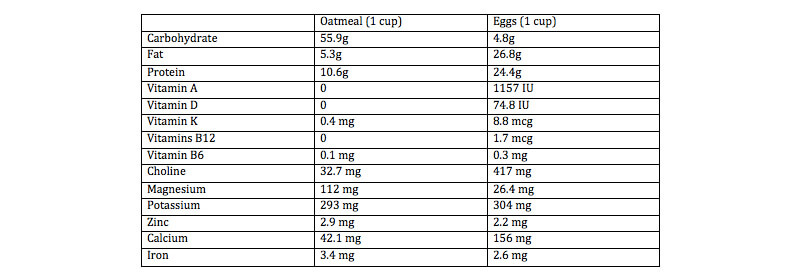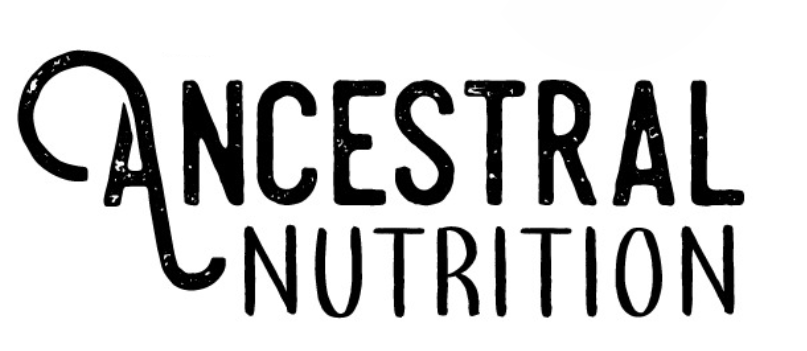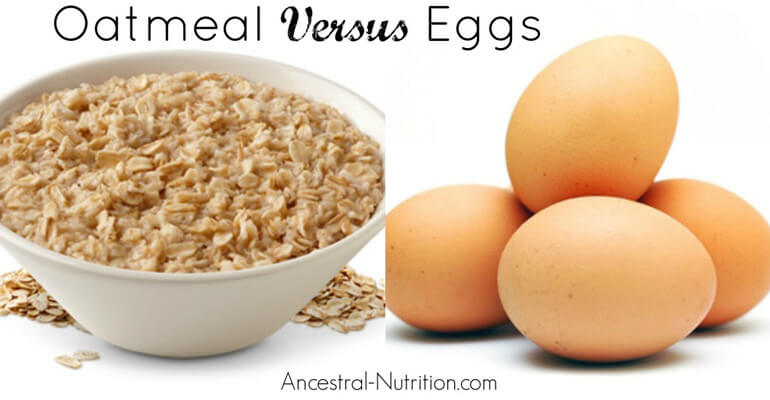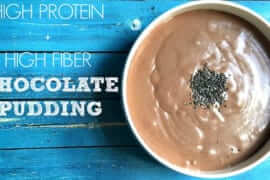I recently had a discussion with a coworker about the nutrient density of oatmeal versus eggs.
According to her, oatmeal was filling, healthy, low in fat and much healthier than eggs. A lot of people think this. I was watching Parks and Rec the other day, and Anne ordered oatmeal and fruit instead of eggs because her character is so health conscious. As an aside, if you don’t want that show, you should probably start because it’s awesome.
I decided to buy oatmeal (gluten-free of course) to perform an experiment.
I rarely eat grains, and when I do it’s simple and easily digestible white rice. Then I soaked the oats overnight in raw milk and coconut milk, and I did this in a mini mason jar (which equated to about 1 cup of oats). I ate half for a morning snack and finished the rest the next day as an afternoon snack. Soaking the oats reduces the phytic acid content and makes them more digestible. Unfortunately for me, I did not digest the oats very well. While they didn’t hurt my stomach immediately, it definitely slowed my digestion. Not ideal. But are oats healthier, more nutrient-dense than eggs?
I normally rely on the USDA’s nutrition database to measure the nutrient density of food. Unfortunately, the government is shut down. So my beloved nutrition database (and PubMed!) is not accessible.
I used Self’s nutrition database instead to determine the nutrient density of these two popular breakfast items.

In your FACE, coworker. Eggs are much more nutrient dense than oatmeal. Not only that, but they’re much lower in carbohydrates. 60 grams of carbs in one sitting is quite high and will spike blood sugar. Eggs are particularly higher in Vitamins A, D, K, B12, calcium, and choline (an essential nutrient, particularly for pregnant and nursing women).
Eggs are higher in fat, but it’s good fat.
They’re also rich in omega-3 fatty acids. Furthermore, eggs do not raise blood cholesterol levels. Evidence supports that eggs raise HDL levels (“good” cholesterol) and lower LDL levels (“bad” cholesterol). Eggs with veggies like mushrooms, onions, kale, tomato, etc. make the perfect breakfast (or lunch, or dinner, or snack). Pastured eggs are much more nutrient dense than conventional eggs, and pastured eggs generally not fed GMOs. Oatmeal is a fine food to eat as long as it’s soaked to reduce phytic acid and you have no problems digesting it. But there is no reason to avoid eggs, they’re the perfect food!
Sources:
http://nutritiondata.self.com/facts/breakfast-cereals/1597/2
http://nutritiondata.self.com/facts/dairy-and-egg-products/120/2
http://chriskresser.com/three-eggs-a-day-keep-the-doctor-away
https://www.sciencenews.org/blog/food-thought/reevaluating-eggs-cholesterol-risks




